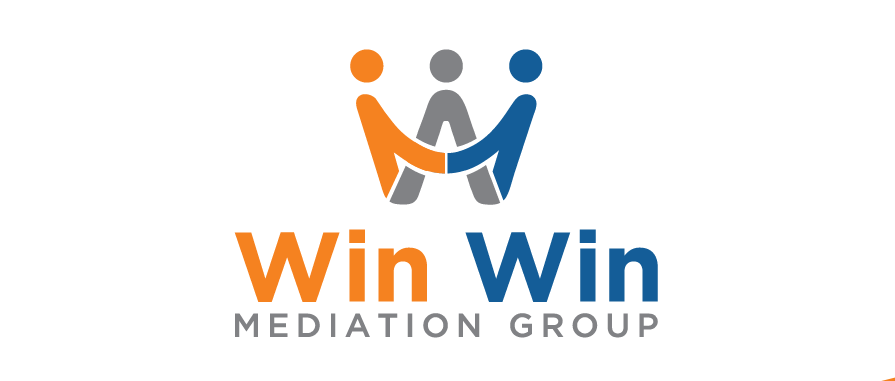ZOOM to Settlement with WIN WIN MEDIATION GROUP!
Best Practices for the Mediator
- We do NOT make our meetings public.
- We do NOT share the meeting link publicly or on social media.
- We password protect all scheduled meetings.
- We change the “screen sharing” option to “Host Only”.
- We disable all recording functionality.
- We have a very specific contract for rules and confidentiality we send to our mediation clients which MUST be signed before mediation begins.
- We request submission of the name, email and cell phone number of EVERY participant before the online mediation begins.
- We send out a 2-minute practice video to participants before the mediation begins or can set up a short one-to-one practice session.
- We place the mediation participants in a “virtual waiting room” where my coordinator greets them, verifies all of their submitted ID information and assigns then to a “named”, confidential breakout room.
- Once all participants are present, we LOCK the meeting down.
- We immediately download all Zoom software updates to ensure security.
- We use a secure network with ethernet line connection.
Best Practices for Participants
- Connect to meeting from a secure network, preferably via ethernet rather than WiFi. (Never from a public hotspot!)
- Practice Makes Perfect — participants who intend to present materials are asked to practice using screen share or whiteboard tools in advance of the mediation.
- Ensure a closed-room, with no possibility of interruption or having discussions overheard.
- No recording of the mediation permitted by participants, in whole or part.
- Ideally, a cell-phone and email free environment, to concentrate minds on the case at hand.
- Participants should feel free to ask mediator for assurances on privacy/confidentiality.
** Thanks to fellow mediator Pam Hoerster for these remote best practices.
Why WIN WIN MEDIATION GROUP?
Win Win Mediation Group provides clients with cost-effective mediation services. Clients value our experience, integrity, trustworthiness, effective communications, and reasonably priced fees. We work with the parties toward a single-minded purpose – to find that narrow range to help plaintiff clients obtain a better net recovery (top dollar) while helping defendant clients save time and money (bottom dollar).
Win Win Mediation Group leverages technology to make it easy to schedule, easy to provide the necessary information to the mediator in advance of the mediation date, and easy to participate in the process. Scheduling is as simple as submitting an email request for mediation, a simple follow-up call, and filling out a couple forms online, so no printing, writing, scanning, emailing, etc. is necessary.
Win Win Mediation Group mediates cases from all courts and pre-litigation disputes in a variety of fields based upon years of prior legal and business experience (see About page for detailed subject experience). We handle a wide variety of personal injury, property damage, and commercial matters.

Win Win Mediation Group takes an often-emotional process and helps turn it into a business process that improves the parties’ chances of a successful settlement. Empathy and even humor prove effective, when used at the right moments. The parties are encouraged to: examine realistic possible outcomes and the odds of achieving them, evaluate costs and the time value of money required to go to trial (and possible appeal), and weigh the benefits of making a good business decision versus an emotional one that can lead to unexpected and disappointing results at the courthouse.
During a Win Win Mediation, attorneys continue to advocate, but more reasonably and realistically with the mediator than they would with the opposing attorney. With this window of transparency, the mediator will challenge the party’s embedded assumptions and often one-sided evaluations about the value of their case or strength of their defense. In so doing, the mediator is not advocating for one side over the other, but opening consideration of reasonable alternatives that will lead to settlement now.
Win Win Mediation often pushes the parties out of their comfort zones and into compromise and settlement. All you need do is attend prepared, actively listen, be open-minded, and trust your mediator.
What is a “Win Win” Mediation? *
Mediation Is … Mediation is a private and confidential process in which a neutral mediator encourages and facilitates communication between the parties with the goal of negotiating a mutually agreed resolution of their dispute. Many (if not most) judges expect parties in a legal matter to participate in mediation prior to trial, but the decision to participate in mediation is voluntary. Mediation is the most popular form of dispute resolution because it is an efficient process that has proven very successful, with minimal fees and future litigation cost savings. When a case goes to trial, there is a winner and a loser. When a case is settled at mediation, it becomes a “Win Win” for the parties.
Mediation Works! Mediation has proven popular because statistics demonstrate a much greater chance than not of settling the case. Of course, this requires the willingness of the parties, the preparedness of their attorneys, the ability of the parties to actively listen and consider alternate views, the completion of a reasonable amount if not most of the discovery, and finally, the ability of the mediator. Most attorneys are aware of the success of mediation and expect their clients to mediate (when recommended) with the hope and even expectation of settlement. Lawyers (even if they won’t always admit it) know better than anyone of the risks at the courthouse – what kind of jury will I get, is the judge going to admit or deny certain critical evidence, etc. No outcome is guaranteed at the courthouse regardless of how certain the client of the merits of their case or how capable the attorney at presenting it. While mediation requires compromise, it also includes reasonable predictability and certainty in an agreed settlement. Clients who expect and attorneys who guarantee success at the courthouse typically refuse mediation or are just going through the motions to satisfy the judge’s Docket Control Order.

The Process. The Parties consent to the Mediator and each provide advance helpful information. The mediator may conduct joint and separate meetings with the parties and may offer practical suggestions to assist the parties in achieving a settlement. There is no record and absolutely no recording by the parties of the process. The Mediator may use a variety of trained approaches during your mediation, such as **Facilitative (issues clear, mediator views not as important, facilitates constructive communication), Directive/Evaluative (clarification and merits of issues required, mediator expertise offered as suggestions and opinions enabling parties to reasonably and accurately identify/assess issues and realistic possible outcomes), and Transformative (parties realize need to work through their perspective of the case and recognize the other side’s needs and interests, mediator helps parties explore typical assessments to transform the common way of thinking about the type of case). The Attorney Information Sheet the parties provide prior to the mediation (efficiently filled out online), aid the mediator in determining which approach or combination will be best suited for their mediation. Part of the art of mediating is to know which technique will be most effective and when to modify or change the type used. ** From the Program on Negotiation Harvard Law School
Private and Confidential. The only attendees to the mediation will be the relevant parties and/or representatives, and additional non-parties will only attend upon agreement of all parties and the mediator. Information disclosed in the course of the mediation shall not be divulged to the opposing party unless permission is given to do so, nor will any be disclosed outside of the mediation process. Mediator keeps minimal records and all notes are destroyed when the mediation process is completed; thus, responding to subpoenas or giving testimony will be beyond the scope of the mediator, and the parties agree not to request same of the mediator. The parties agree to the confidentiality of the mediation process, meaning no admissions made during the mediation can be used later for any purpose including a parties willingness or refusal to settle.
Identifying issues, communicating strengths and weaknesses. At the core, the Mediator helps the parties communicate by determining what, when, and how to pass on information as approved by the party providing it. He helps identify key issues and underlying interests, and encourages them to consider other possible and best alternative outcomes. These include the impact of fees, expert fees, court costs, and other factors, as well as how to properly evaluate possible results based upon a few basic calculations (risks of recovery as applied to realistic and possible damage awards). In the end, even with the mediator’s expertise, the parties alone determine the outcome and make binding decisions, including the basic terms of any agreement. The Mediator may make a proposed resolution near the conclusion of the process upon mutual request of the parties, but does not impose their own judgment on the case.
Accurately Assessing Outcomes. Judge and (especially) jury verdicts, are impossible to predict, and difficult to self assess when the parties have concluded their case is strong. Strong advocates tend to focus on the strengths of their case, and in so doing can minimize the strengths of their opponent’s case. Reaching a mediated settlement allows the parties to more objectively calculate the risks associated with an adverse or unexpected verdict and benefiting from costs savings and the time value of money. Mediation costs, in light of the relatively high expectation of resolution, are substantially lower than litigation costs especially considering the risks at the courthouse.
Parties Control Their Destiny. Mediation is collaborative process with limited direct communication of emotions between the parties, and thus less adversarial than ongoing litigation. This enables the parties to operate in a more positive, less adversarial manner. A mediated settlement can be creatively drafted to suit the parties’ interests, instead of the limited settlement options of the court. Such agreements also have higher compliance rates since they are mutually agreed as compared with more limited court-imposed results which neither party may like.

Mediator Commitment. The mediator will have no conflict, that is, no personal or financial interest in the outcome. Any known possibility of even a perception of conflict will be revealed, discussed, and dismissed as inconsequential by the parties prior to starting. The mediator will serve only upon mutual agreement of the parties. The mediator’s authority is to facilitate the voluntary resolution of the case, not decide any issues. The only exception to this rule is when the parties mutually agree toward the end of the process and request mediator input on a final outcome (typically an amount).
Parties’ commitment. While the parties do not commit to settle the case, all parties agree to engage in good faith throughout the process, with the reasonable goal of settlement, if at all possible. The parties will not use mediation merely for fact-finding or to utilize the process for ulterior purposes such as the service of subpoenas, to cause emotional turmoil, etc. The parties will attend prepared, that is they will have filled out their Attorney Information Sheet, Request for Mediation, bring with them any evidence tagged and ready for use as they deem appropriate for exploration of issues, and any information for possible consideration of the strengths and weaknesses of their case as well as the opposing party’s. The parties acknowledge the mediator will not serve as an arbitrator or judge, but as an advocate for settlement and to facilitate the process toward such end. The parties will trust the mediator’s judgment regarding impasse as significant developments occur just when the parties are ready to give up. Important – The parties will ensure a representative with authority to settle the case is present at the mediation, as well as any possible greater authority (as with insurance or corporate decision makers) by immediate telephone conference. Finally, the parties recognize that settlement or successful conclusion of the mediation is not guaranteed, but that participation more often than not can lead to successful resolution and therefore a “Win Win” for all parties.
Keys to Settlement. Attorneys need to attend prepared, with relevant and necessary discovery exchanged and taken, familiar enough with the details of their case to help the Mediator communicate key evidentiary matters without also giving away protected trial strategies, and have a decision making authority present or immediately available for not uncommon revelations during mediation. For Plaintiffs, this may include medical provider contact information and accurate invoice totals (to negotiate liens); for Defendants, this may include contact information for a Claims Supervisor/Manager or an appropriate Executive.
________________________________________________________________________________________________________________________________________
* The Texas Civil Practice & Remedies Code §154.001 et seq provides the “Rules for Mediation,” and the Supreme Court of Texas has promulgated Rules of Ethics that apply to mediations and mediators. “Win Win” results by reaching a mutually agreed settlement that: gives each party the satisfaction of resolution, eliminates risks, often improves plaintiff net recovery, while also reducing insurance/corporate costs. Going to trial requires some or even substantial risk, and rarely results in truly winning as there is no guarantee of a result by defeating or getting the better of your opponent.
